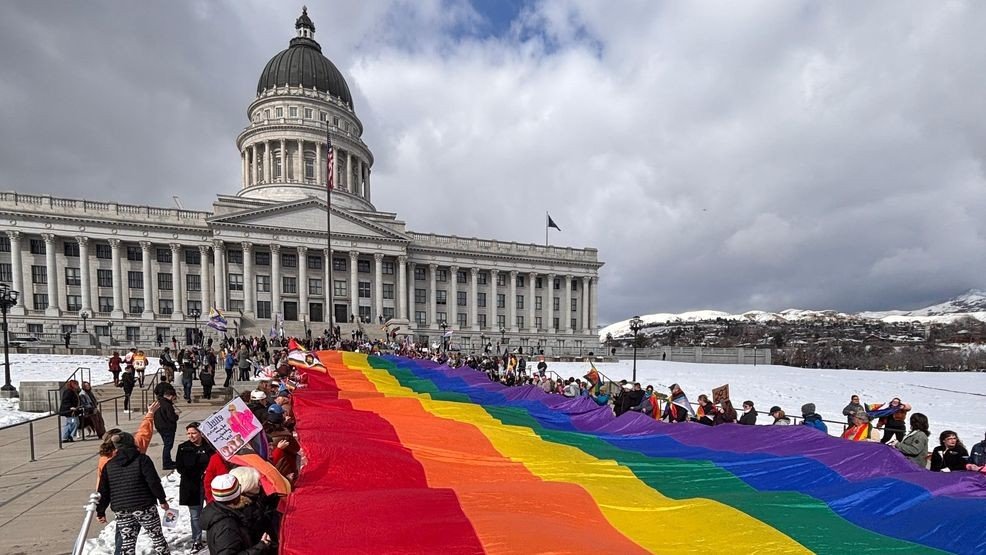Utah has made headlines as the first state in the U.S. to pass a law banning the display of LGBTQ+ pride flags in all government buildings and public schools.
The decision has sparked a lot of debate, with people on both sides of the issue speaking out passionately.
Governor Spencer Cox signed the bill into law, which prevents flags other than the official state and national flags from being flown on public property. This includes the rainbow pride flag, which has long been a symbol of LGBTQ+ rights and visibility. Under the new rule, local government offices, public schools, and state-run buildings will no longer be allowed to display the pride flag.
Governor Cox explained that the goal of the law was to maintain neutrality in public spaces. “Our public buildings and schools should represent all Utahns, not one specific group or cause,” he stated after signing the bill.
However, many people, including LGBTQ+ advocates and activists, have strongly criticized the law. They argue that it is a setback in the fight for LGBTQ+ rights, particularly in a state with a large LGBTQ+ community. For many, the rainbow flag represents years of struggle, progress, and the right to be seen and heard.
Critics of the law feel it’s an attempt to erase LGBTQ+ identities in Utah and silence their voices. “This law doesn’t promote neutrality; it pushes our community back,” said a representative from Equality Utah, an LGBTQ+ rights organization. “It’s a message that LGBTQ+ people aren’t welcome, and that’s hurtful.”
Russia Strikes Ukraine’s Power Plant
Amid Winter
Supporters of the bill, on the other hand, argue that the rainbow flag has become a political symbol, and it’s inappropriate for it to be displayed on government property or in schools. They believe public spaces should be free from political statements and should focus on unity. “We’re not banning the pride flag; we’re just saying that public institutions need to stay neutral,” said one of the lawmakers who supported the bill.
For many people in Utah, this law has sparked a wider conversation about the balance between freedom of expression, government neutrality, and the rights of marginalized groups. Some believe the law is an overreach, while others think it’s a necessary step to prevent any one political message from taking over public spaces.







